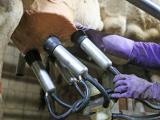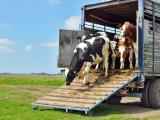May 4, 2010
Survey: More parents refusing immunizations for kids
A survey by the Centers for Disease Control and Prevention (CDC) found that the proportion of US parents who delayed or refused a vaccination for young children reached 39% in 2008, up from 22% in 2003, USA Today reported today. The findings came from the CDC's National Immunization Survey and were based on records and interviews of parents of children aged 1½ to 3 years. Dr. Lance Rodewald of the CDC said the change may not be as dramatic as it looks, because three more vaccines (for hepatitis A, rotavirus, and flu) were recommended for children between 2003 and 2008, which gave parents more chances to refuse them. Interviews with parents suggested that many were influenced by myths, such as that vaccines cause autism and that children can't be vaccinated when they have a cold, Rodewald told the newspaper. An illness in their child was the leading reason parents refused a vaccination, cited by 44%. The survey findings were presented at the Pediatric Academic Societies meeting in Vancouver, B.C.
May 4 USA Today report
Rift Valley fever confirmed in German returning from South Africa
A German who recently traveled to areas in South Africa hit by a Rift Valley fever (RVF) outbreak was confirmed to have contracted the disease, the World Health Organization (WHO) reported today. German health officials confirmed RVF by laboratory testing on Apr 27. The woman and three companions traveled from mid March to early April in Eastern Cape and Western Cape provinces. She and a traveling companion developed a fever, headache, and skin eruption on Apr 7. The WHO did not specify the fate of her traveling companion. Since February South Africa has reported 172 RVF cases, including 15 deaths, in Free State, Eastern Cape, Northern Cape, Western Cape, and North West provinces.
May 4 WHO update
WHO confirms Cambodian man's H5N1 death
The WHO confirmed Cambodia's latest H5N1 avian influenza case and death, on the basis of a report it received from the country's health ministry. The H5N1 illness and death of a 27-year-old man from Prey Veng province were recently reported in the media. The WHO statement today said he got sick on Apr 13, was hospitalized Apr 16, and died the following day. Today's confirmation raises Cambodia's H5N1 case count to 10, of which 8 were fatal. Presence of the virus was confirmed by Cambodia's National Influenza Center at the Pasteur Institute in Phnom Penh. An investigation revealed that the man had prepared and eaten sick poultry within 7 days before symptom onset. The latest H5N1 confirmation raises the global H5N1 total to 496 cases and 293 deaths.
May 4 WHO statement
Study finds mosquitoes' resistance to repellent is heritable
A British research team reports that the insensitivity of some mosquitoes to the common insect repellent DEET is due to an easily inherited genetic trait, a finding that raises questions about efforts to control mosquito-borne viruses such as dengue fever and yellow fever, according to a news report in Nature. The team found that about 13% of their laboratory populations of Aedes aegypti mosquitoes were insensitive to DEET. When DEET-insensitive female mosquitoes were mated with untested males, half of the females in the next generation were insensitive to the repellent, and that proportion remained stable through subsequent generations of selective breeding. The findings suggest that the insensitivity is due to a single gene rather than to a collection of genetic traits, said John Brookfield, a coauthor of the study, which was published in the Proceedings of the National Academy of Sciences. James Logan, another coauthor, said the results add to evidence that insect repellents may engender resistance if used on a large scale to control mosquito-borne diseases.
May 4 Nature report
May 3 Proc Natl Acad Sci abstract




















